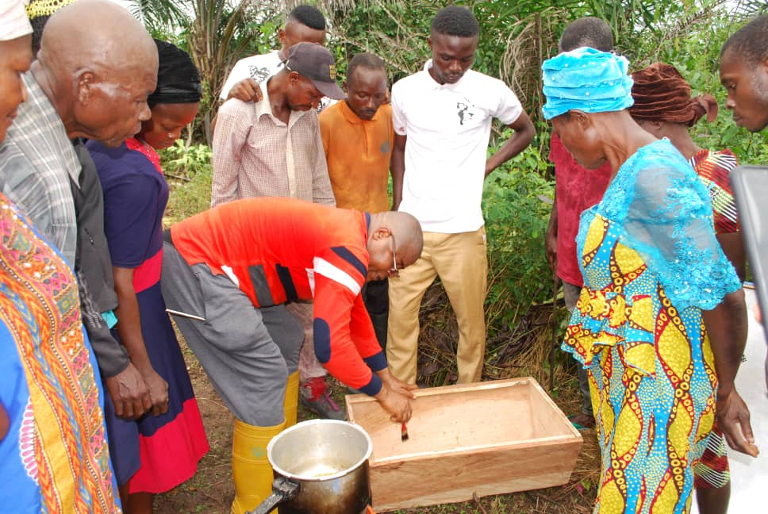The health, economic and environmental impacts of apiculture as a science of keeping bees to tap natural pure and unadulterated honey and processing honeybee byproducts for various industrial, nutritional and pharmaceutical usefulness cannot be overemphasised. The global yearning for natural pure honey and its other byproducts like beeswax, propolis, pollen, bee venom, mead etc., are insatiable.

Seminarians of St. Peter’s Catholic Seminary Okigwe after training
Beekeeping is not restricted to the above alone. Considering the recent climate change events, food insecurity and decays of the ecosystem, our environment needs resuscitation. Incessant bush burning and deforestation exposes the environment to severe threats by erosion and denudation. When humans fell trees without replacement and regulations, this encourages runoff waters (erosion). These actions equally make the soil less productive by washing away the soil fertility, leading to food insecurity, hunger and starvation.
On the other hand, beekeeping encourages the planting of trees to provide raw materials to the bees for their bio-diversified activities. In this process, too, we check erosion. When that is done, the earth’s surface is protected and soil fertility enhanced for maximum crop yields. Again, when we have sufficient vegetation, the bees would have more nectars and pollens for their activities; and by perching on one flower to the next, the bees unconsciously carry out pollination, which increases food yields. Therefore, beekeeping impacts the ecosystem and environmental preservation.

A cross-section of participants during training
Economically, beekeeping is highly lucrative. Honey is an oil with a cost per litre that ranges from $7 (N3,500.00) and above. A kilo of beeswax is about $8 (N4,000.00), to mention but a few statistics. The value of petroleum oils is less than $1 per litre in the global market.
Against this background, and to continue the excellent work of preserving and sustaining the environment and our climate, RURAL WATCH AFRICA INITIATIVE (RUWAI) has been doing a lot to encourage different localities in Nigeria. Two months ago, RUWAI was at Idima Abam in Arochukwu Local Government Area, Abia State, Nigeria, to install ten (10) KTB beehives for a group of women and youths. In less than a month of the installation, the bees have naturally colonized one of the hives.


Since this activity, many other communities have been pressurizing us to come to their aid to replicate what has been done at Idima Abam.
Ed. note: If you wish to help RUWAI with these projects, you can donate here.
Teaser photo credit: Installation of beehives at Idima Abam in Arochukwu Local Government Area, Abia State, Nigeria, for a group of women and youths.





